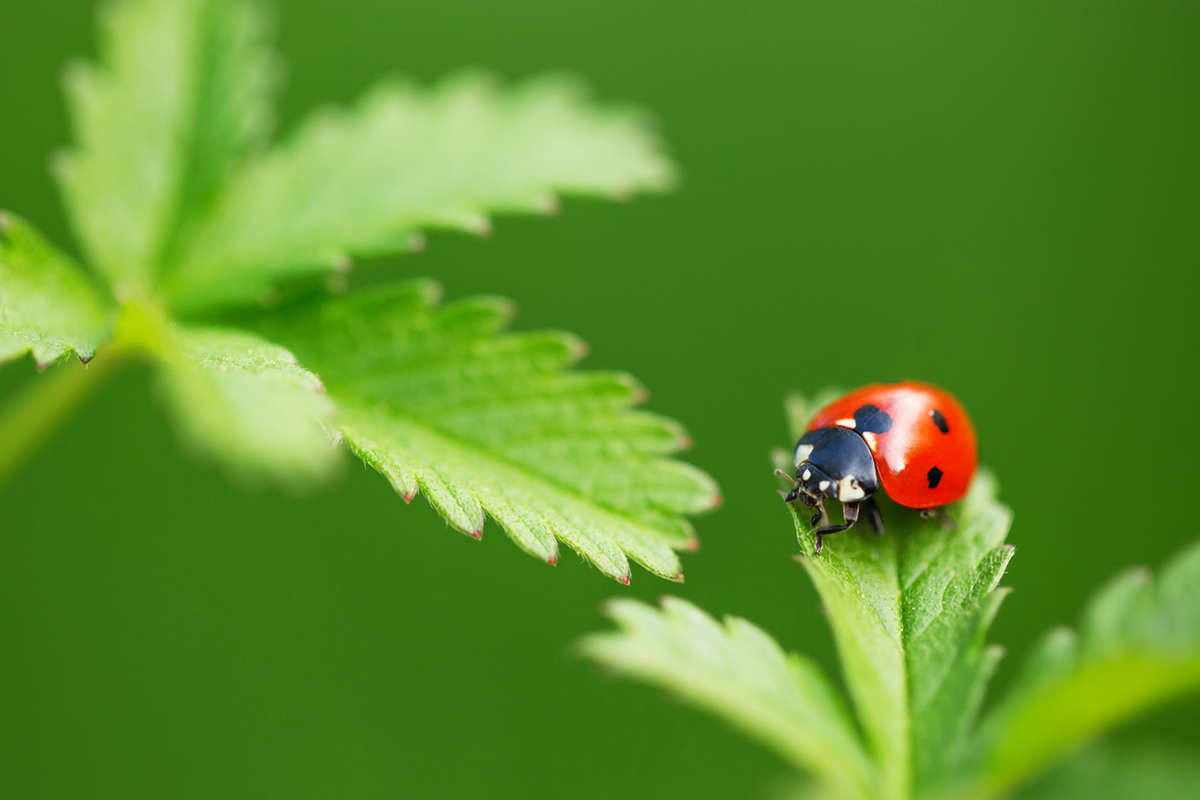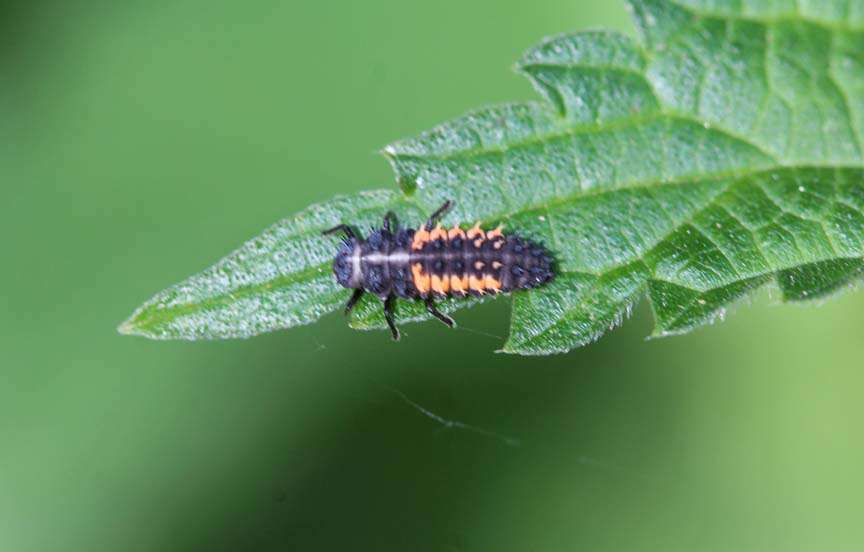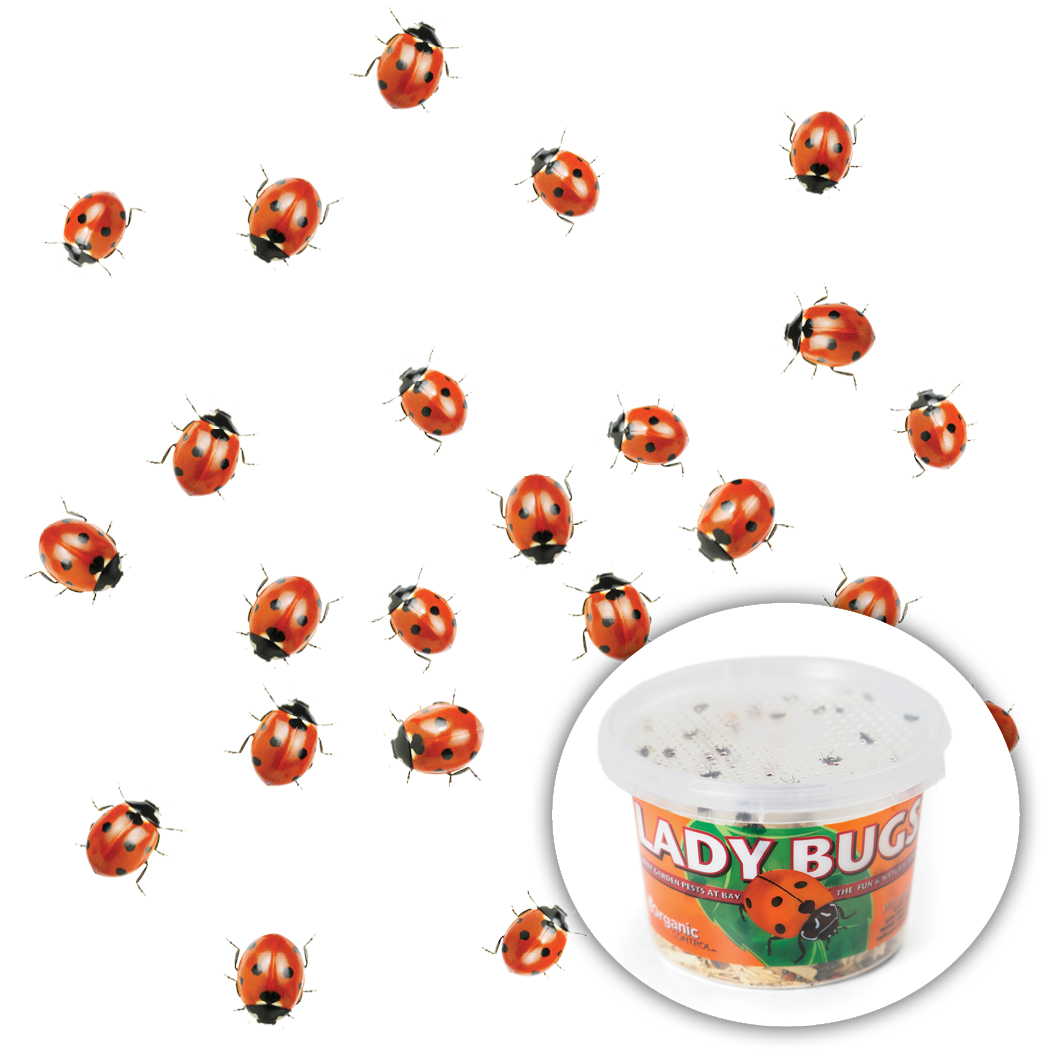
Beneficial Insects, Part I

Garden Superheroes: Ladybugs
Did you know that 98% of all known insects are considered good bugs? If your plant is suffering due to a bad bug, there are beneficial insects out there hungry to get at that bad bug and mow it down. Green Acres Nursery & Supply has beneficial insects that are ready to put on their superhero capes and keep your garden in a healthy, beautiful balance.
We encourage you to bring in a picture or sample of the damage on your plants and our gurus can help you find the perfect superhero. Capes are optional.
We encourage you to bring in a picture or sample of the damage on your plants and our gurus can help you find the perfect superhero. Capes are optional.
Our first and best known hero is the ladybug. We all know the cute shape, the beautiful bright red or orange color and the perfectly placed black dots. Ah, but there is much more than beauty.
Ladybugs love aphids and eat them up like candy. That alone is enough reason for us to love them. But, wait, there is more! If it is soft-bodied, the ladybug will eat it. Also on the ladybug menu are mites, scale, moth and beetle eggs, and thrips. Your fruit trees, flowers, and veggie garden will thank you.
The ladybugs at our nurseries are kept at the store in a refrigerator, where it is dark and cool. When you get home, keep them in your refrigerator until it is time to release them (the crisper drawer is perfect because it keeps the ladybugs cold without freezing).
Ladybugs love aphids and eat them up like candy. That alone is enough reason for us to love them. But, wait, there is more! If it is soft-bodied, the ladybug will eat it. Also on the ladybug menu are mites, scale, moth and beetle eggs, and thrips. Your fruit trees, flowers, and veggie garden will thank you.
The ladybugs at our nurseries are kept at the store in a refrigerator, where it is dark and cool. When you get home, keep them in your refrigerator until it is time to release them (the crisper drawer is perfect because it keeps the ladybugs cold without freezing).
Ladybugs are living creatures that need a good supply of water, food and shelter. Spray your plant with water so they have something to drink. To be sure they have food, do not spray insecticides just before or just after release. Let your ladybugs out at night when it is dark and cool so they aren’t in extreme heat or sun. Now open the container and let them out at the base of the plant that needs ladybug superhero help. As the sun comes up and it gets warmer, the ladybugs get moving up the plant. Think of it as breakfast in bed, with a little bit of a walk.
Watch carefully for the young lady bug. The larval form is longer and thinner than the adult, with alligator-like ridges along the sides. It is still generally black and red, but the shape is totally different. This young ladybug has a huge appetite just like the grown-ups.
Watch carefully for the young lady bug. The larval form is longer and thinner than the adult, with alligator-like ridges along the sides. It is still generally black and red, but the shape is totally different. This young ladybug has a huge appetite just like the grown-ups.

Ladybug Larvae Pupa
Our nurseries also offer a combination of ladybugs with lacewings. When lacewings are added to the mix, you now get even more power against pests. Lacewings will devour mealybugs, psyllids, whiteflies and even small caterpillars. The instructions about the care and release of ladybugs are the same with this combo pack of ladybugs with lacewings.
Read on to learn more about attracting good bugs to your garden: Attracting Beneficial Insects
Read on to learn more about attracting good bugs to your garden: Attracting Beneficial Insects


